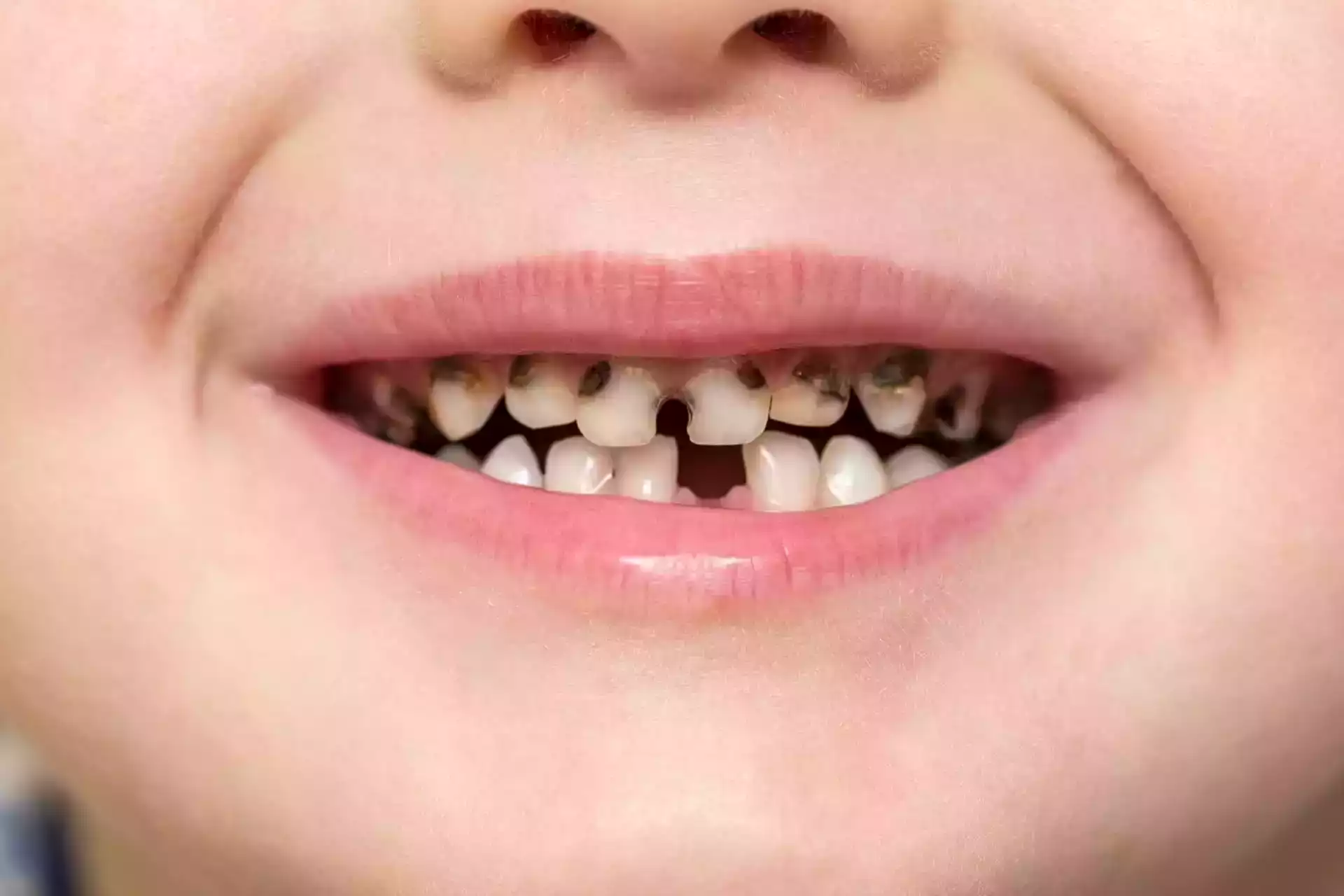How to Fix Rotten Teeth
Many people experience rotten teeth, also known as tooth decay, with more than half of adults having had treatment for rotten teeth. There is no absolute cure but there are options for rotten teeth treatment to prevent further decay, and the option you choose will depend on the severity of the cavity.
Rotten teeth may cause concern because the infection can spread to adjacent teeth and the gums, besides causing significant pain and discomfort. Needless to say treating rotten teeth will be one step closer to creating a Hollywood smile.
Rotten Teeth Signs & Symptoms
One of the most obvious signs of a rotten tooth is visible pits or holes in your enamel, as well as black, brown, or white staining on the surface of the tooth.
- Symptoms of a rotten tooth may include:
- Toothache
- Sensitivity
- Mild to sharp pain when exposed to heat or cold
- Pain when you chew something
- Spots on the tooth that may be grey, brown, or black
- An unpleasant taste in your mouth
- Bad breath
- Teeth alterations
- If the situation is severe, swelling and pus may also be seen
Apart from these, patients with a rotten tooth may suffer from other complications, which may include:
- Gum infection and inflammation (gingivitis)
- Unable to enjoy food
- Weakened immune system
- Decreased energy
- Sepsis (severe and rare cases)
- Meningitis
Unfortunately, many patients do not realize experiencing any tooth decay until it reaches its later stages. Since rotten teeth may affect your daily life, it is recommended to visit the dentist as soon as these symptoms start.
How to Fix Rotten Teeth in the Early Stages
Upon noticing teeth decay, there are a few things you can do to lessen the severity of rotten teeth and avoid further instances in the future.
How to Get Rotten Teeth Fixed Through Your Diet?
Your diet has a huge impact on your oral health. As we all know, a diet high in sugar is not good for your teeth. Instead, a well-balanced diet, high in vitamins and mineral is important for avoiding rotten teeth. Several studies also recommend limiting sugars and starch in your diet, especially if you have tooth or gum problems. It is often recommended to have adequate vitamins A, D, E and K as part of nutrition to help.
Hydrating is also important since a dry mouth allows plaque retention in the mouth. Several studies also recommend limiting phytic acid in the diet. Phytic acid or phytate is known for its ability to reduce the absorption of several nutrients in the body.
It is also advised that a diet with lots of mineral-rich vegetables and healthy fats is good for reducing likelihood of rotten teeth. For example, oils such as fish and olive oil are high in fat-soluble vitamins, so it is good to include these in your diet during rotten teeth treatment.
An Obvious Rotten Teeth Treatment in Good Oral Hygiene
Good oral hygiene is a key part of how to fix rotten teeth. You must brush your teeth at least twice a day and floss at least once. The mindful practice of oral hygiene every day may maintain good oral health and help prevent further decay. Consistently flossing your teeth, brushing tiny circular motions, and rinsing with a quality mouth rinse help remove unwanted food and bacteria from the teeth and gums.
The best rotten teeth treatment depends on the time of diagnosis or if a cavity has formed. Doctors usually recommend brushing with fluoride toothpaste or getting fluoride treatments during the early stages. Visiting your doctor or dentist frequently (at least every three months) may help diagnose the rotten tooth early.
Other Options for More Severe Rotten Teeth Treatment
If the decay has eroded through the enamel, the doctor may recommend:
- Filling the cavity: The doctor may remove the decay and use the material to fill the defect and restore the original shape of the tooth. You can get fillings in white to retain a nice aesthetic appearance on your teeth.
- Putting a crown on the tooth: In case of severe decay or if your tooth is damaged, a dental crown or cap is usually recommended, which is a manmade replacement for the visible part of the tooth above the gum line.
- Using a bridge or an implant: After the root canal therapy, if the root canal gets infected, the doctor may extract the tooth and replace it with a dental bridge or dental implant.
If you’re considering rotten teeth treatment, many receive dental treatment in Turkey for more affordable prices.
